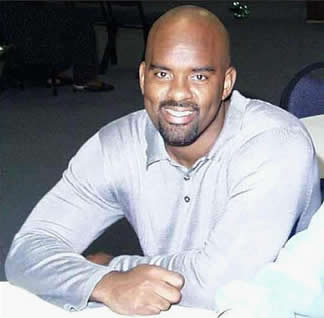 Where Would I Like To Be? Where Would I Like To Be?
What is your strategy to get you to the financial place you’ve always dreamed of being? Too often our financial future is comprised of waiting for Social Security, Medicare and/or Medicaid, or some other type of social program to take care of our financial and health needs. While some legitimately deserve these services, we should take appropriate steps not to become dependent on a system that is broken and will ultimately leave large numbers of Americans out in the cold.
Many of us have an entitlement mentality. We believe that because we are who we are, others should take care of us. This is a reality that we must dispel. While Social Security and Medicare are provided to those who worked for these benefits, other forms of “entitlements” should be dismissed.
The situation that I just described is a “poor” person’s approach to financial viability. Indeed the Bible clearly says that the poor will be with us always, but that does not mean that you should count yourself among their numbers. Having a poor person’s financial plan leads to that reality, while having a “middle-class” person’s financial plan leads to an even more challenging situation.
Being in the middle-class was the dream of our parents because it provided a safe, stable, and comfortable lifestyle. Today, however, the current middle-class is replete with many difficult challenges. The common notion of middle-class living is to go to college, study hard, major in a high-demand field, get a good job, create a retirement/pension fund, and invest in a 401(K) plan that focuses on mutual funds. While each of these steps represents sound principles to help you achieve middle-class status, they also contain difficulties that are exposed by today’s global economy.
Some of the factors that you must consider when determining your “chosen” class are international industrialization, technological advancements, out-sourcing of American manufacturing and white-collar jobs through NAFTA and other trade agreements, the decimation of the American manufacturing base, massive layoffs, and job hopping. These situations lead to a shrinking of the American middle class and place a considerable burden on maintaining an equivalent status that your parents upheld.
There is an alternative to the poor person’s mentality and the middle-class approach to financial viability. This approach centers on the belief that you are a free moral agent and that God has ordained you to live a life free from lack and dependence.
Matthew 6:33 says in the New International Version Bible, “But seek first his kingdom and his righteousness, and all these things will be given to you as well.”
I am so happy that Jesus did not specify what the “things” were. It is your responsibility to identify the things you wish to receive, but only after seeking Him first.
The rich person’s approach to financial viability is centered on the use of leverage. The three distinct forms of leverage are: other people’s time, other people’s money, and other people’s resources. You can use leverage without exploiting others. I encourage you to consider these important means to achieve your goals. To live a life free of the travails associated with our current status, we must appropriately leverage whatever resources are at our disposal. I feel it so important that we understand this important concept that I will cover it more extensively in our next column.
Editor’s note: Dr. Rickie C. Keys is the founder and president of Renewal Financial Services, LLC. You can review this and similar information at www.renewalfinancial.com.
Return To Top |
